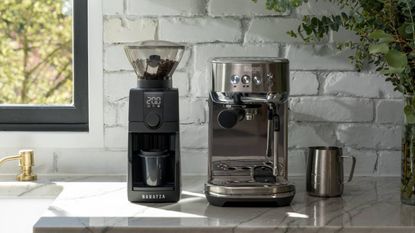Kitchen
The latest Kitchen breaking news, comment, reviews and features from the experts at T3
Explore Kitchen
-
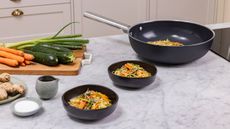
Watch out, Le Creuset – Smeg’s new cookware is luxurious, colourful and surprisingly affordable
Smeg debuts new cookware, made in Italy
By Bethan Morgan Published
-
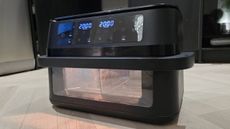
Haier I-Master Series 3 Flex Double Drawer Air Fryer review: a huge, flexible family-sized mini oven
A huge, flexible drawer and a genuinely useful window – but the 200°C ceiling and clunky controls stop it from being a Ninja-killer
By Lee Bell Published
-
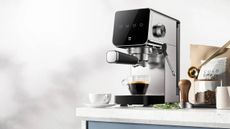
I didn’t expect Xiaomi to make an espresso machine – but I wish I’d had it when I was at university
Xiaomi’s Mijia coffee machine is compact, clever and can sit at your desk
By Bethan Morgan Published
-
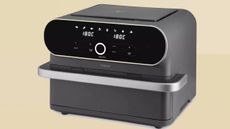
Tower’s new Elite air fryers are here, and I can’t decide which one I like best
Tower takes on Ninja with new Elite air fryers
By Bethan Morgan Published
-
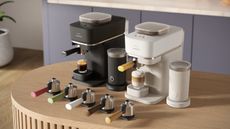
I’ve been waiting nearly a year for Philips’ easiest bean-to-cup coffee machine – and it’s finally here
Say hello to the Philips Baristina
By Lizzie Wilmot Published
-
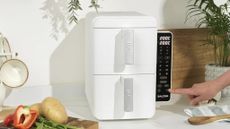
Salter's new air fryer could be the best-looking model available right now
It's not a bad price either
By Lizzie Wilmot Published
-
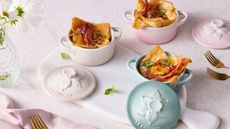
Le Creuset launches Jardin stoneware collection and it’s got me excited for spring
Is it spring already?! Le Creuset’s new Jardin collection seems to think so
By Bethan Morgan Published
-
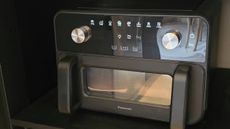
Panasonic Flex NF-BC1000KXC Air Fryer review: an excellent, spacious air fryer with one frustrating flaw
A clever, family-sized air fryer with steam cooking and a pizza-ready drawer – let down by a major design flaw
By Lee Bell Published
-
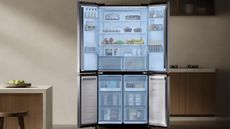
Xiaomi’s new premium smart fridge could be the best the market has seen in years
It's available to buy from today
By Lizzie Wilmot Published
-
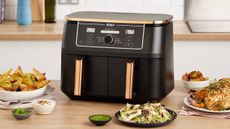
Hate your air fryer’s loud beeping? This is the hidden feature you need to know about
Can’t stand your air fryer beeping? I’ve got the trick for you…
By Bethan Morgan Published
-

Nespresso’s limited-edition decaf capsules are perfect for night-time coffee lovers
French Lavender & Vanilla Decaffeinato is here
By Lizzie Wilmot Published
-
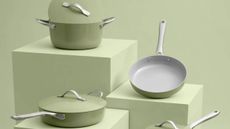
ProCook takes on Our Place with its own colourful cookware sets – and they’re a fraction of the price
ProCook debuts cookware and bakeware sets, and I’m officially obsessed
By Bethan Morgan Published
-
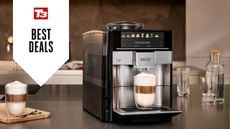
This Siemens bean to cup coffee machine just got an insane £720 price cut!
Upgrade your coffee game with 55% off Siemens’ smart coffee machine
By Bethan Morgan Published
-
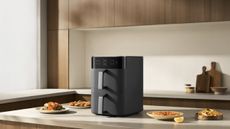
Xiaomi’s new stacked air fryer gets a bigger capacity and smarter design
Yet it's still 35% smaller horizontally than its predecessor
By Lizzie Wilmot Published
-
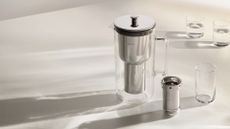
I didn’t think I needed a water filter jug until I noticed these 3 signs
It might seem like a boring gadget – until you actually use one
By Lizzie Wilmot Published
-
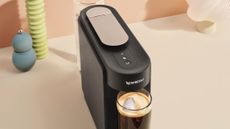
Nespresso launches first pod coffee machine in years – and it’s the sleekest one yet
The Nespresso Vertuo Up has arrived in the US
By Lizzie Wilmot Published
-

Pour your favourite pints with the Beerwulf BLADE and Save £100 this Winter
Sponsored by Beerwulf
Beerwulf's BLADE starter packs give you everything you need to bring the pub home.
By T3.com Last updated
-
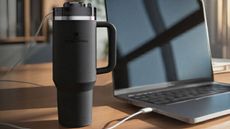
This portable coffee machine makes cold brew in just five minutes – and it looks like a Stanley cup!
The Ecoldbrew coffee maker is my favourite launch from CES 2026
By Bethan Morgan Published
-
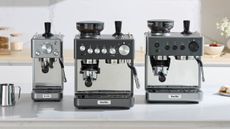
There’s a hidden feature in your Breville or Sage coffee machine – here’s what it does and how to use it
It might just change your routine for good
By Lizzie Wilmot Published
-
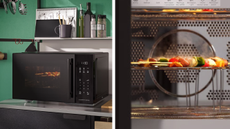
IKEA's "impressively affordable" 3-in-1 microwave is now back in stock – but you'll have to be quick
It's likely to sell out again very quickly
By Lizzie Wilmot Published
-
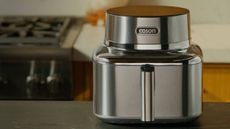
COSORI quietly announces its Iconic air fryer that’s made from stainless steel
COSORI reinvents the air fryer with new stainless steel materials
By Bethan Morgan Published
-
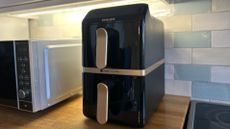
Philips 4000 Series Stacked Dual Basket Air Fryer review: a strong first step into the stacked air fryer market
After a string of strong releases, Philips has finally launched its first air fryer with a stacked design
By Lizzie Wilmot Published
-
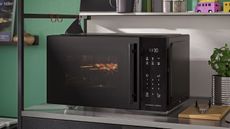
IKEA’s latest kitchen gadget is a 3-in-1 microwave – and it comes at a bargain price
The GÅTEBO Microwave Oven is ideal for smaller kitchens
By Lizzie Wilmot Published
-

Best air fryer 2026: mini ovens for full flavour, faster cooking and lower costs
Find the best air fryers tried and tested, for quick, healthier and time-saving meals, from Ninja, Tefal, Tower, Philips and more
By Bethan Morgan Last updated
-
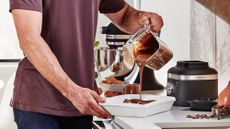
Best blenders 2026: blitzing machines for smoothies, soups and liquidising
T3 picks of the best blenders from Nutribullet, KitchenAid and everything in between
By Bethan Morgan Last updated
-
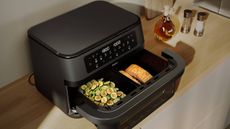
Haier takes on Ninja with its maxi-drawer air fryer – and it has one of my favourite features
Haier’s new air fryer is a must for healthy new year cooking and meal prepping
By Bethan Morgan Published
-
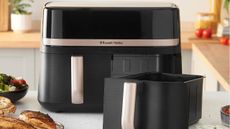
Got an air fryer for Christmas and don’t know where to start? Here’s exactly what to do next
You'll be an expert in no time
By Lizzie Wilmot Published
-
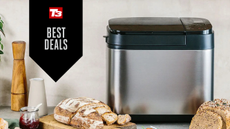
There's one kitchen gadget I’m relying on for my New Year’s resolution – and it’s 20% off right now
Could this inspire you as well?
By Lizzie Wilmot Published
-
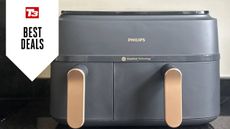
If you want to eat healthy in 2026, this Philips air fryer is the appliance you need – and it’s half price!
Improve your cooking in the new year with £70 price cut on Philips’ best air fryer
By Bethan Morgan Published
